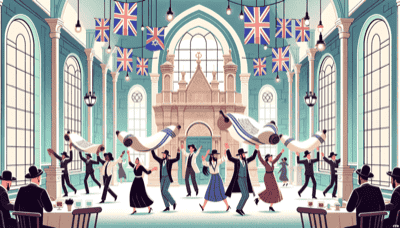We're here to help you keep count of the days to or since a date. Just click the button below and enter your chosen date to get started. Also choose the suggested days or search for a special day above #countingthedays

Simchat Torah, which translates to "Rejoicing with/of the Torah," is a Jewish holiday that marks the conclusion of the annual cycle of public Torah readings and the beginning of a new cycle. It falls immediately after Sukkot and is celebrated on different days depending on whether one is in Israel or the Diaspora. In the United Kingdom, as in other parts of the Diaspora, Simchat Torah is usually observed for two days.
The celebration of Simchat Torah originated during Rabbinic times and gained prominence in medieval Europe. It's not directly mentioned in the Torah but developed from rabbinic tradition.
On Simchat Torah, various customs highlight the community's love for the Torah and joy in celebrating God's word:
Hakafot: This involves circling around the synagogue or a designated area while carrying Torah scrolls and singing and dancing. In some synagogues, this is done seven times.
Torah Readings: The last portion of Deuteronomy (V'Zot HaBerachah) is read, immediately followed by the first section of Genesis (B'reishit), symbolizing that learning never ends.
Aliyot for All: In many communities, it is customary for all members present to be called up to recite a blessing over the Torah (aliyah).
Special Honors: Two significant honors are given - Chatan Torah (bridegroom of the Torah) to someone who reads or recites the concluding section of Deuteronomy, and Chatan Bereshit (bridegroom of Genesis) for starting Genesis anew.
In UK synagogues:
Hakafot are performed both on Erev Simchat Torah (the evening when it starts) and on Simchat Torah morning.
There’s an atmosphere of festivity; congregants may wave flags, children often receive sweets, and it's a time rich with community spirit.
A special meal or kiddush may be held to celebrate together after services.
Synagogues may organize special events such as parties or learning sessions focused on engaging with and rejoicing over Jewish texts.
Since this holiday emphasizes community participation, you'll find people from all walks of life joining together to express their joy for the continuity and centrality of the Torah in Jewish life.